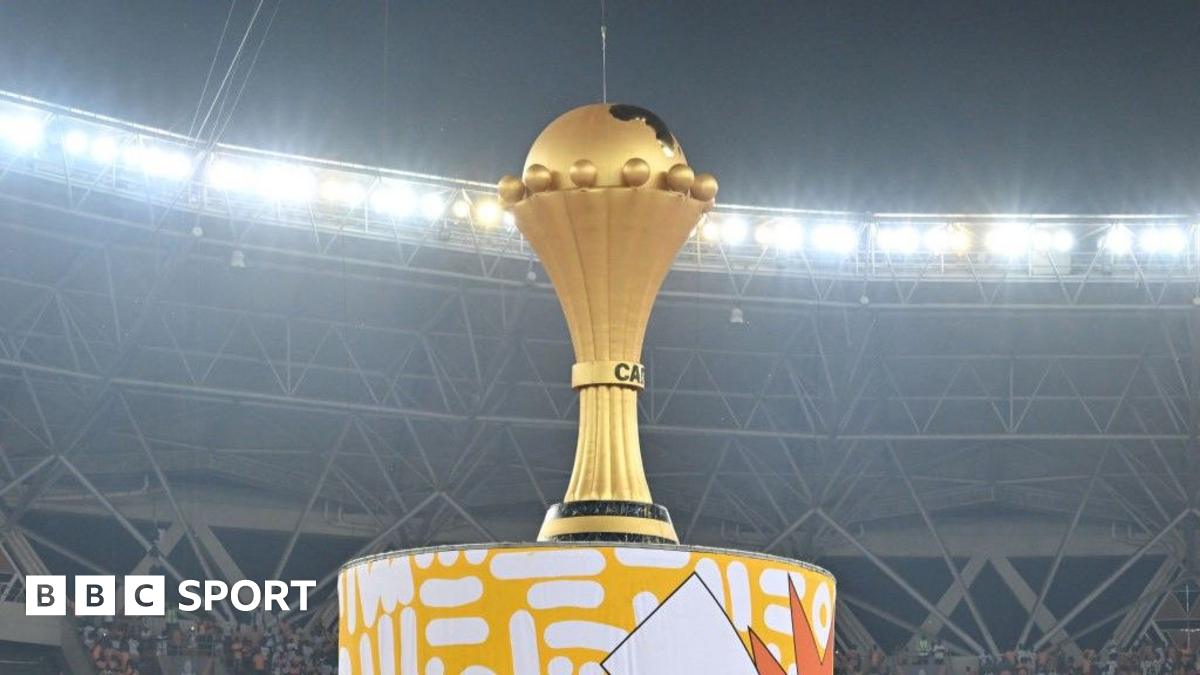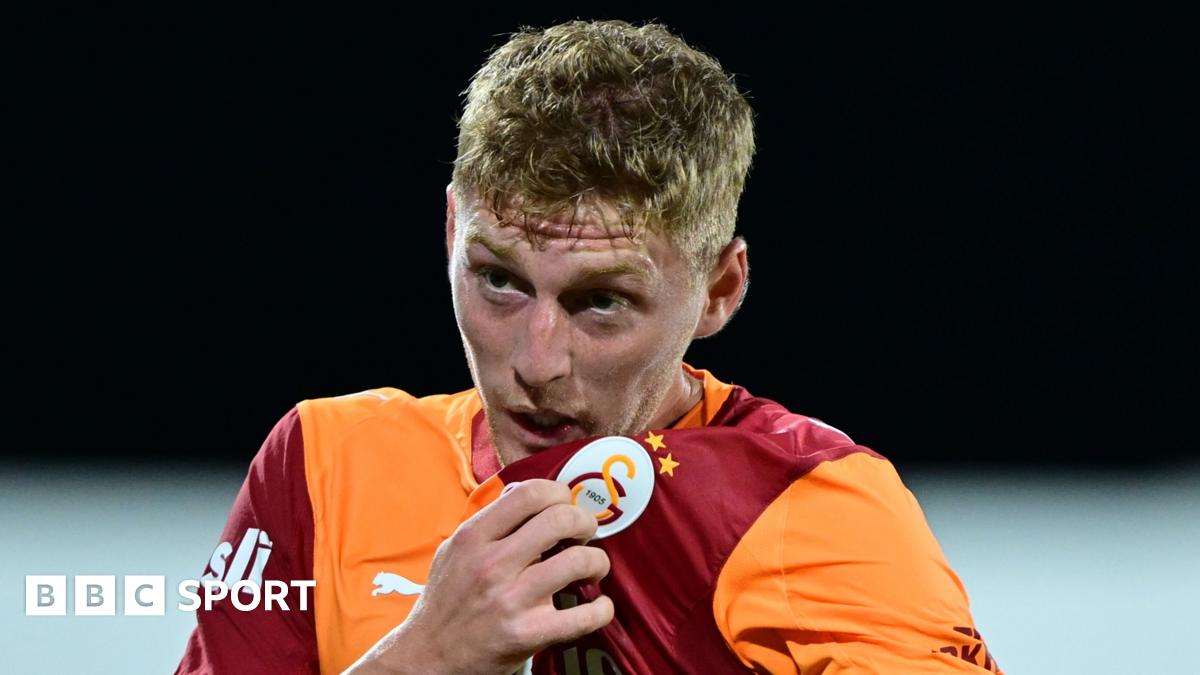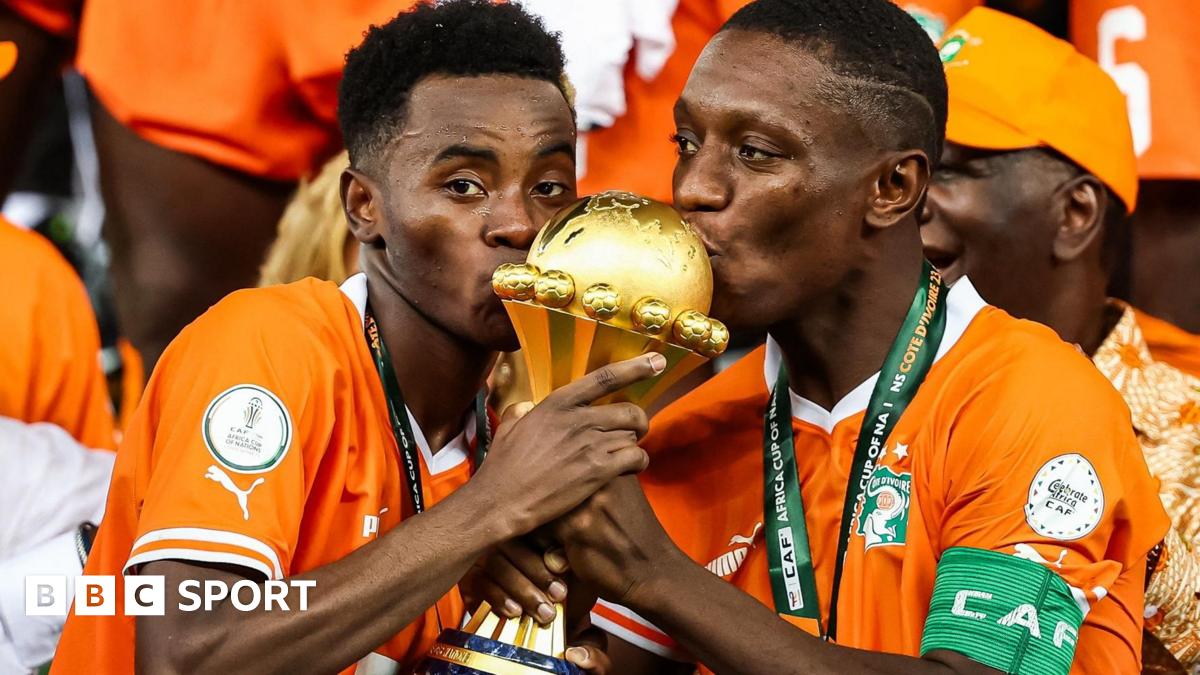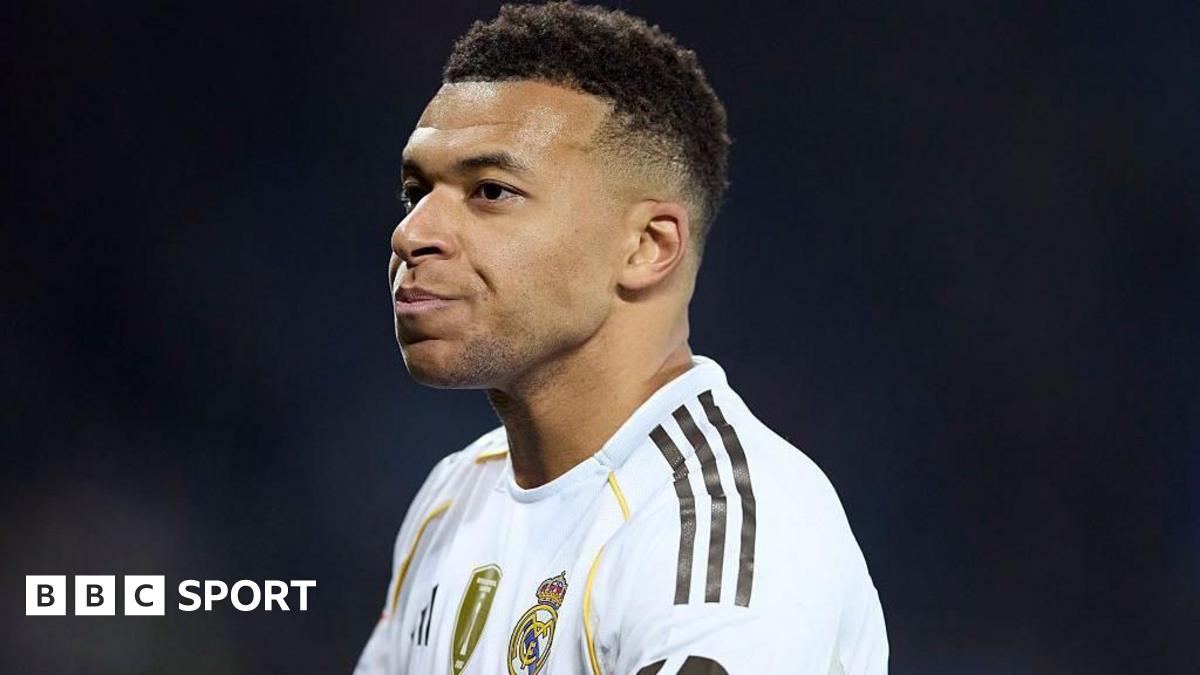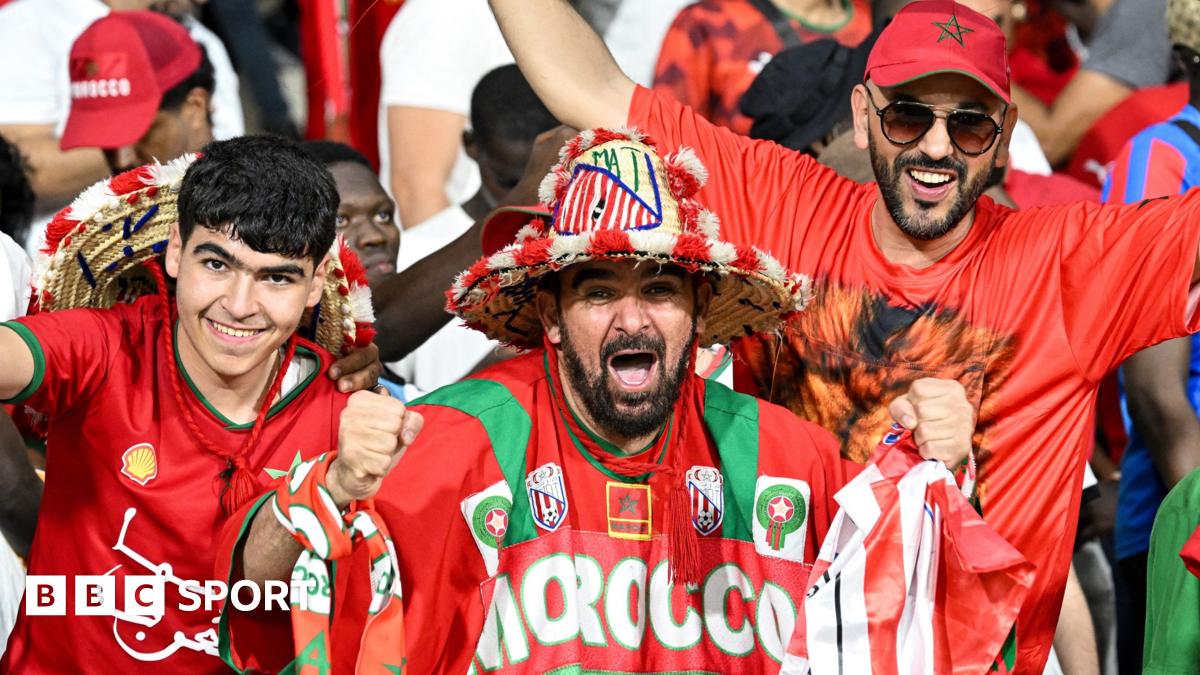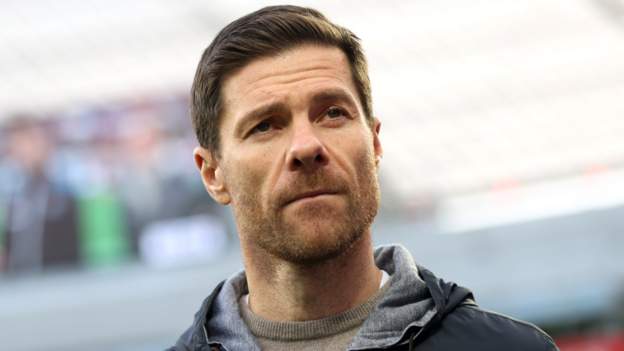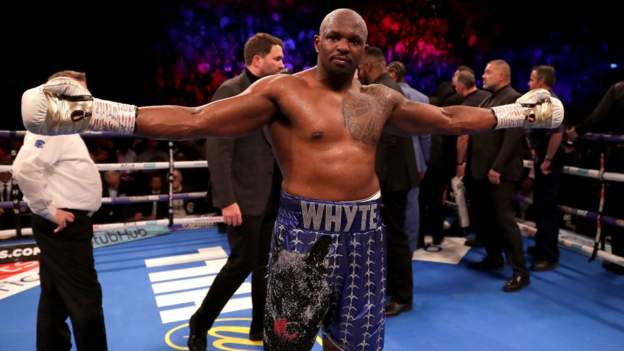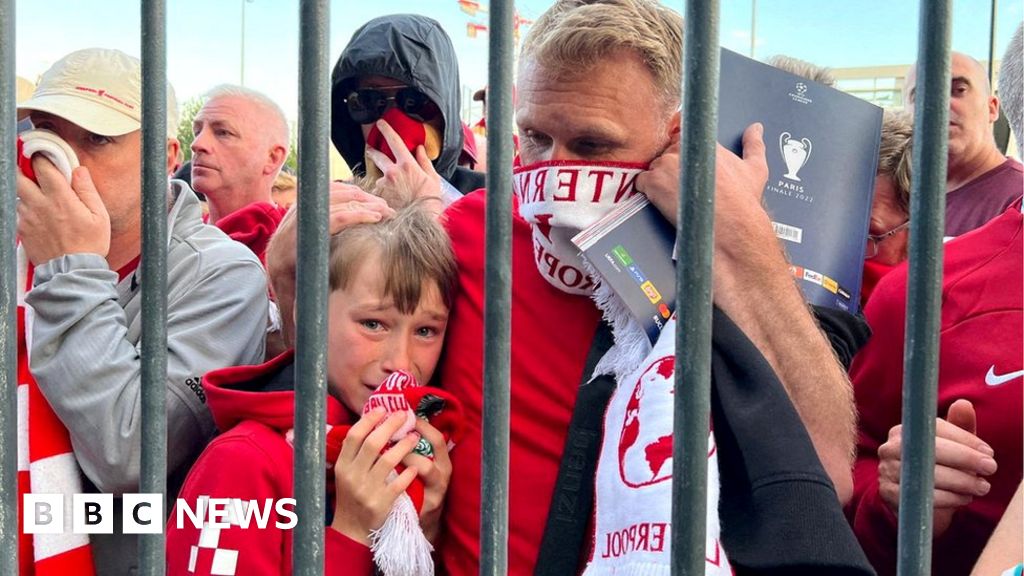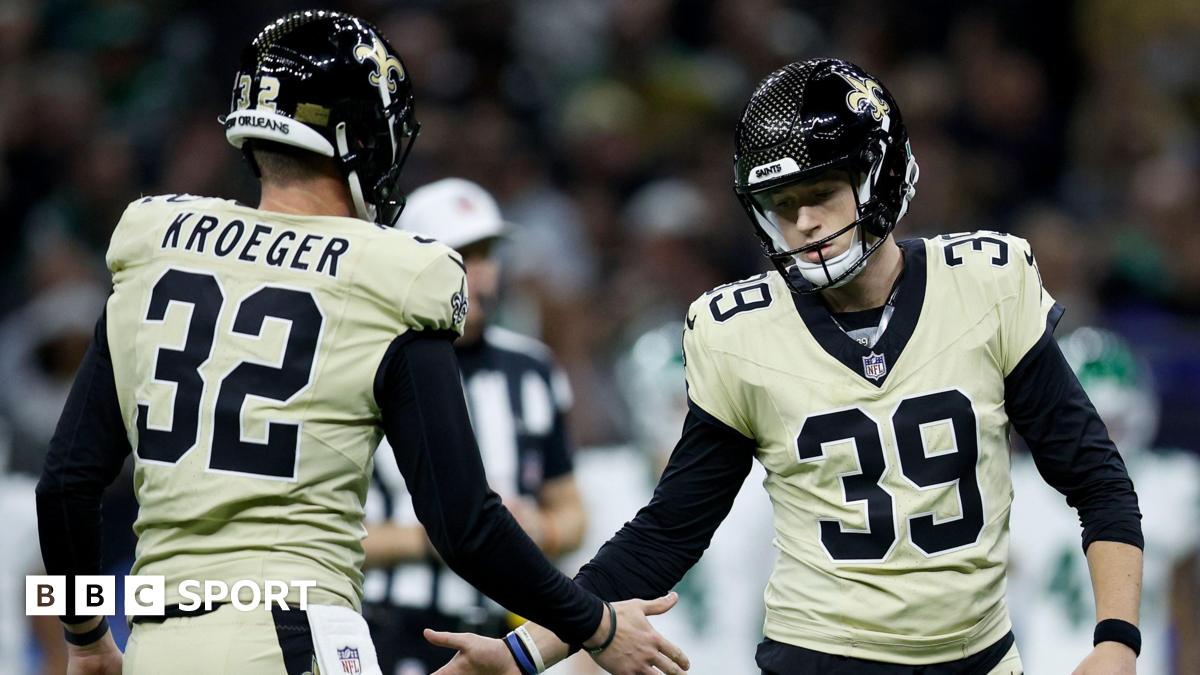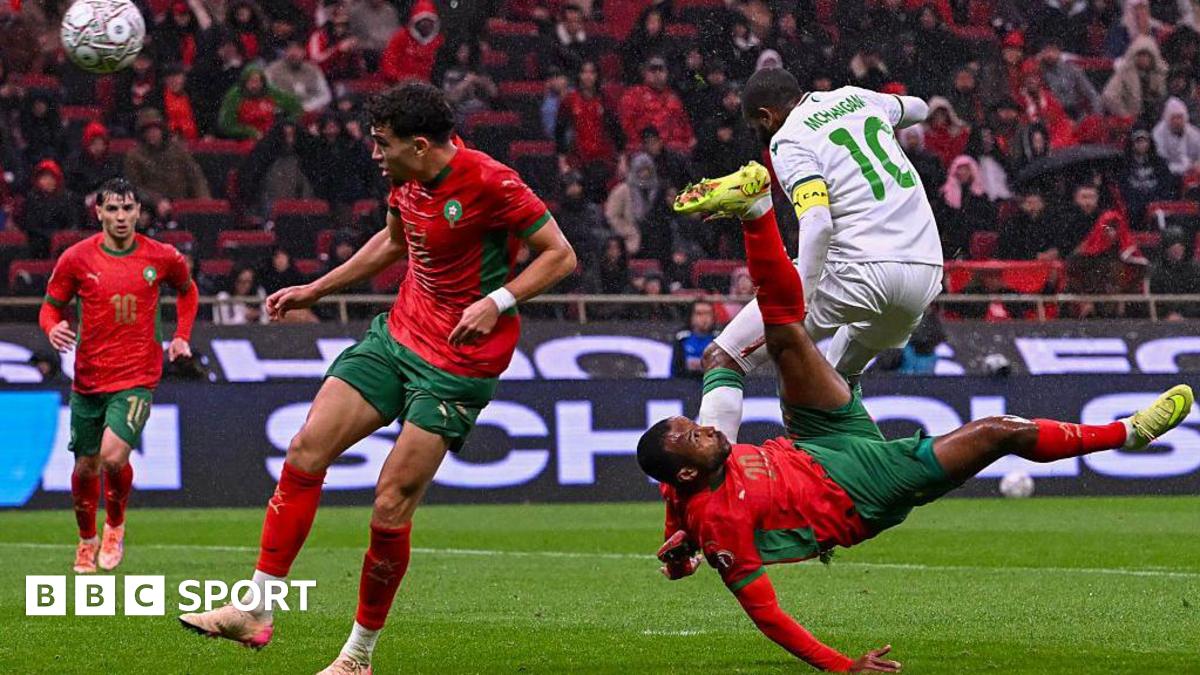The distant dream Eritrea’s footballers had of reaching the 2026 Fifa World Cup was extinguished before it had even begun.
The East African country, who last played an international in January 2020, pulled out of qualifiers for the finals in Canada, Mexico and the United States just a week before they were due to play their first game against 2022 World Cup semi-finalists Morocco.
Neither the Eritrean National Football Federation (ENFF) nor the country’s government have commented on the decision, which has angered both players and supporters.
“I don’t know why it has happened or who is in charge. It is clear that those at the top aren’t taking football seriously enough,” Eritrea midfielder Mohammed Saeid, who plays for a club in Sweden, the country of his birth, told BBC Sport Africa.
“I feel so frustrated because there are a lot of players coming through right now with Eritrean backgrounds, many playing around Europe.
“We could compete if given a chance but when they see what is happening, will they really want to represent Eritrea in the future?
“I’m going to be able to tell my kids one day that I played for the Eritrea national team and it was one of the most amazing things I’ve experienced. But there are now so many players being denied this opportunity.”
After also withdrawing from preliminaries for the 2023 Africa Cup of Nations, the latest decision poses questions over what future the country has in the game.
The country currently has no world ranking despite being a member association of global governing body Fifa.
“The sudden absence of Eritrea on the global stage leaves a void that’s deeply felt by fans,” Canada-based fan Aklil Tecleab told BBC Tigrinya.
“Soccer is more than a game; it’s a source of national pride and unity. It’s disheartening to see our nation seemingly becoming the only one dampening the spirit of sports.
“The lack of communication with supporters and the absence of a clear reason only intensifies the disappointment.”
The worry over defections
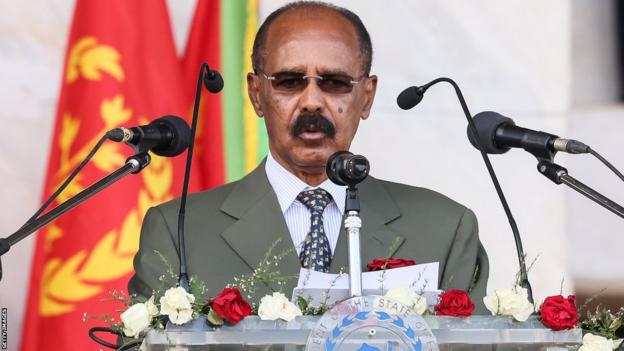
Eritrea were scheduled to play 10 matches over the course of the next two years after being drawn alongside Morocco, Zambia, Congo-Brazzaville, Tanzania and Niger in Group E of Africa’s World Cup qualifiers.
It is believed a major reason for the withdrawal is because the country fears domestic-based plays will abscond and defect once they travel aboard – a risk heightened by five away trips which would have begun in Morocco last week.
Eritrea has been plagued by repression at home and tense relations with its neighbours since winning independence from Ethiopia in 1993, and the one-party state has a highly-militarised society.
A United Nations report this year highlighted “serious concern” over human rights in the country, including forced conscription and arbitrary detentions, and said that the rule of law was “non-existent”.
There are multiple previous instances of Eritrean players absconding while on club and international duty.
Botswana granted asylum to 10 members of the squad which played a 2018 World Cup qualifier in the country in October 2015 and the most recent incident involving the men’s national team came when seven went missing during a regional championship in Uganda in December 2019.
“Defection of players is incorporated with the political situation in our country,” said a former government official, speaking anonymously to BBC Sport Africa.
“The government says everyone must be conscripted. Everyone, whether it is a doctor, football player, a cyclist or an engineer, has to finish national service. But it doesn’t end after 18 months.
“They don’t have any future and they are not living a good life in Asmara (the country’s capital city). So, if they get a chance the best decision will be to defect.”
One Eritrea fan understands why players would make that choice as he says “nothing has been done” to promote football in the country.
“The national team has not been participating in the main competitions so when players get a chance to go abroad they do not want to go back,” Million Abraha, who now lives in Kenya, told BBC Tigrinya.
BBC Sport Africa contacted both the ENFF and Eritrea’s government for comment but neither responded.
Expanding horizons
The anonymous government official believes the ENFF are now aiming to gather a squad of players from the Eritrean diaspora to play in future qualifiers on the continent to prevent the possibility of domestic-based players defecting.
Saeid, who plays for Trelleborg in Sweden, had hoped his international debut in 2019 would be the start of an exciting new chapter in his career.
However, he is yet to add to the sole cap he won against Namibia and the first Saeid heard about Eritrea’s withdrawal from World Cup qualifiers came on social media.
“I thought the match would still go ahead – all of the players did,” the 32-year-old said.
“We were speaking among each other last month and there was genuine hope that we might play again.
“We even hoped we might be able to squeeze in a friendly in the last international break so we could all get to know each other again as it had been so long.
“I was telling my parents I’d be representing Eritrea again and was looking forward to it. Then I found out that there was no game.”
‘The coach didn’t know who I was’
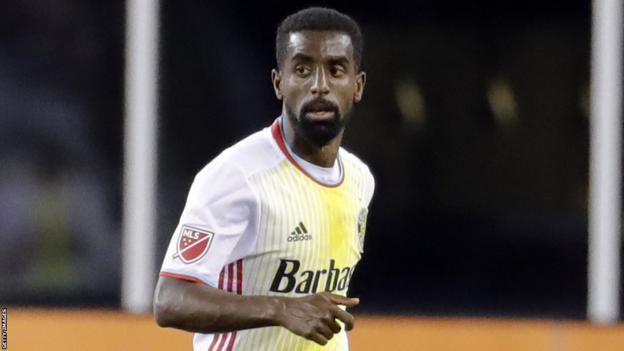
Saeid’s trip to Namibia to make his debut for Eritrea four years ago gave him a glimpse into what he perceives as deficiencies of the ENFF.
“It was chaotic and disorganised,” he smiles ruefully.
“The coach didn’t even know who I was. I had to introduce myself and tell him I was one of the few players who was playing in Europe.
“Surely the head coach should know who his players are?
“There was just very little information – if you don’t know when and where to fly to, for example, how are you expected to perform on the pitch? You need these basic resources to be right.”
Yet despite what Saeid describes as “highs and lows” amid difficult preparations, he was thrilled to make his international bow.
“It was still one of my best trips,” Saeid recalls. “I played for the country of my parents and this was a feeling of unbelievable pride for me.
“For the first time in my life, I was around people who all spoke the same language as me and looked the same as me. That was special.
“Playing for Eritrea made me better understand the fans and understand that no matter the result, they will support the national team and find joy in football. It felt like it was an exciting time, that we were part of a team that could do something great.”
Eritreans ‘will always be ready’
Despite the setbacks, Saeid remains hopeful that positive change can come to Eritrean football – and insists the appetite is still there among those keen to play for their country.
“It needs someone to come in and shake things up,” he said.
“It would be great to have a coach who can bring experience and instil some professionalism – someone who can improve things off the pitch and also actually coach the players and help them improve.
“Every time there is an international window we are waiting for news. There have been so many opportunities that have come and gone.
“We are tired of all the time that has been wasted and we want to play; the players will always be ready to play for Eritrea.”
But others believe nothing will improve until the country’s government revises its outlook.
“The political status in our country is not safe,” the former Eritrean government official said.
“The geopolitics of our region harms the situation. The main solution is the peace and stability of the country has to be sustained first.”

